
Thursday Soapbox: Getting on a Soapbox!
News 19 MarchWe invited a broad range of speakers from our staff community to speak about a topic they were passionate about.
30 September 2021
Share
Anti-Vax versus Pro-Vax. State versus State. Climate change activists versus Climate change deniers. Whether it is in our media, that “must-see” drama series on Netflix, or plastered over glossy magazines stacked on grocery store shelves, our lives are infiltrated by images and stories that heighten our anxieties and grow suspicion and fear of our neighbours. These conflicts thrive on an all-too-familiar dichotomy of separating people into simplified and binary classifications: there is ‘us’ and there is ‘them’.
It can be easy to write off or distance ourselves from people who disagree with us, and to create artificial bubbles of safety with those who only agree with our perspectives. What is the harm that occurs with this movement, though? A natural consequence of this separation is that we lose sight of the inherent dignity and goodness of the human person; of the person right in front of you who is beautifully and wonderfully made.
A person is not defined by a single or dominant aspect of their behaviours or attitudes. A one-dimensional opinion or assumption about another person serves no-one. In meaningful dialogue, asking questions and being curious often goes much further in communicating respect and love. Looking with the eyes of love, and without judgment, always opens us to see the multifaceted personalities of our friends, neighbours, and strangers, and to be able to laugh at the ridiculous, tolerate the insufferable and console the broken-hearted.
One of the gifts of the Christian tradition is the recognition of the divine spark, God, in each and every person. In other words, when we truly listen, empathetically and with an open of heart, dialogue becomes this beautiful divine dance, where the presence of God that is in you is recognised, echoed, and loved by the presence of God that is in the other person. This does not mean the conflict or disagreement simply disappear. Rather, we become able to hold the tensions and incompleteness of life in the same space as its joys and triumphs. One of the challenges that Jesus offers in the Good News is to love one’s enemies. Being kind to your friends is easy.
In Hugh Mackay’s recent book, The Kindness Revolution, he reflects on the power of kindness in the midst of a passionate and tense dialogue with others:
“We can disagree with each other, but we can do it kindly, not as an ego contest. Compassionate engagement with other people’s views is quite consistent with robust differences of opinion. In the case of Christian denominations, they can easily lose sight of the essential teachings of Jesus, of kindness and compassion for others, as spelled out in the Beatitudes and the Sermon on the Mount. The good life is not just about which dogmatic boxes to tick — it is about inclusion and empathy and kindness, not who’s in and who’s out.”
May we always be the ones who can stand side by side with our opponents and our friends.
Bio: Br James Hodge is the Project Development Coordinator in the Identity and Mission Directorate, and a Marist Brother. If you are looking for a good book recommendation, check out Hugh Mackay’s, The Kindness Revolution.

We invited a broad range of speakers from our staff community to speak about a topic they were passionate about.

Irish coffee has so many things happening all at once... just like the Catholic faith. Jeremy Ambrose, Campus Pastoral Associate (Staff) on the Melbourne Campus, having an Irish Godmother and wife, hi...

Who is God? Personal, and Alive! Nathan Costin, Campus Ministry Manager, reflects on the Lenten journey and the deepening encounter with Jesus to draw us closer to the living God.

Synodality is our future and our reality". Maddy Forde talks at the NCEC conference introducing the concept of synodality from a young person's position
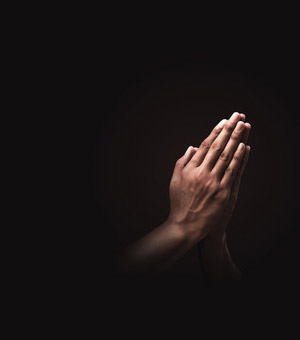
The miracle of the human body is epitomised through the healing vocation of Physiotherapy, and this skill is cultivated through the selfless gift of body donors.

Jean-Claude encourages us to 'keep our poker faces out of our relationships' and work on strengthening our integrity by becoming beacons of truth and goodness after reflecting on his recently viewed b...

By inviting others to share in your journey of real life experiences, disappointments, anxiety and fears makes us realise we are not alone. Gabby challenges us to surrender our burdens to feel humble...

“We are not made to be solitary, but we are made for community.” Paolo Grella reflects on his experience of community over the years and how it adds a vital element to life.

No matter how long the night, the sun will always rise! Colleen Tracey shares her recent experience with COVID-19 and reminds us to tap into the 'grace' in every challenge and obstacle, to remain pos...
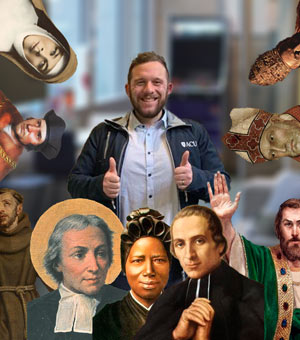
Saints, the great heroes of the Catholic tradition, faced challenges and adversity during their lives. Inspired by their feats and acts of virtue, Jake Santitto reflects on the challenges that they fa...
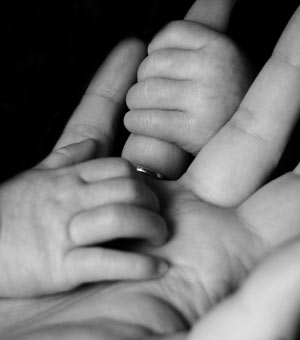
Hannah Scullion, Campus Pastoral Associate, talks about how experiencing pregnancy gives her a new and more relatable perspective on how she views her relationship with Mary, our spiritual mother.

How can we, with our individual power, use our daily choices to convey hope, support brave changes, and walk alongside our First Nations sisters and brothers? Maddy Forde, Campus Pastoral Associate ur...

Society portrays a certain image of what masculinity is. Paolo Grella reflects on this and how his understanding has changed over the years, leaving behind words of encouragement for others.
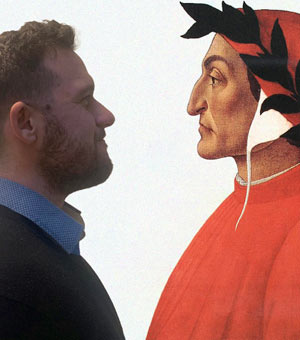
Join Jake Santitto, Campus Pastoral Associate (Student), as he dives into Dante’s divine comedy and is drawn into the 3 realms of the Christian afterlife to see how literature can transform your life ...

How can you be a fool for God, not only for one day but for a lifetime ahead? Jeremy Ambrose, Campus Pastoral Associate.

To lift up and give hope to those despairing, Colleen Tracey, Campus Pastoral Associate asks us to live in the here and now to embrace the grace and let the light of God's love come out of the darknes...

Father Harry Chan, Banyo Campus Chaplain, reflects on why God may seem so silent when we are experiencing the tough times in our lives.
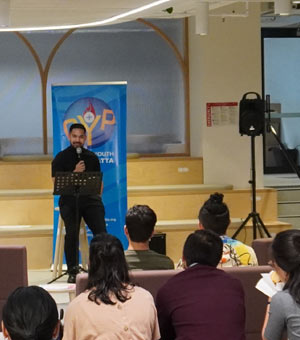
What makes thirty young adults gather at a university campus on a Friday evening? The promise of engaging conversation and encouraging formation, of course.

Processing the turmoils of life can seem almost impossible at times yet, Gabby Fernandes, Campus Pastoral Associate (Students), encourages us to take the time to stop and reflect to allow room for hop...
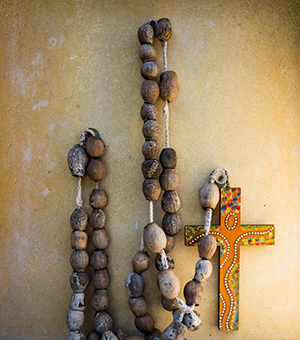
ACU is called to live out and express its identity and mission in a range of ways. At ACU, prayer is a way of acknowledging our commitment to seek the truth and is integral to the core mission values...